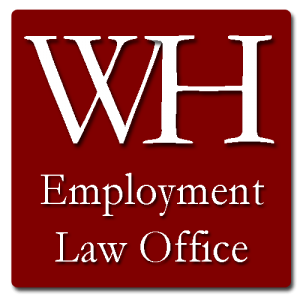California Labor Commissioner Cases
Posted April 2018 by S. Ward Heinrichs
California Labor Commissioner Cases
The California Labor Commissioner’s Office is also known as the Division of Labor Standards Enforcement. As that name implies, it enforces many of the laws and regulations that govern employment. For instance, the Labor Commissioner enforces wage and hour laws, Labor Code retaliation laws , and some Workers’ Compensation insurance laws. The Labor Commissioner also helps employers apply for and obtain certain types of employment related certificates and licenses in the following industries: Agriculture, Entertainment, Garment, and Car Wash.
The most common type of claims the Labor Commissioner handles are wage and hour claims. Typically, an employee, or former employee, files a claim because he or she believes that the employer owes wages or has violated another wage related law that allows for a penalty that the employee can collect. Often employees claim violations of the following laws: overtime, unpaid straight time, minimum wage, meal periods, rest periods, wage statement violations, waiting time penalties, etc. The Labor Commissioner sends notice of the claim to the employer and includes a case conference date and time. The employer has the option to pay the amount claimed in full or attend the conference.
The conference serves several purposes. One, it establishes the identity of the parties. Two, a Deputy Labor Commissioner explains what the claims are. Three, the Deputy Labor Commissioner will attempt to mediate a settlement.
Normally, after gathering some basic information and explaining the charges, the Deputy Labor Commissioner has the two parties go to different rooms. The Deputy alternately visits both parties, giving each in-sights into the positions of the other party and conveying counter offers authorized by the parties. Sometimes, the parties are so far apart that the Deputy does not attempt mediation. Most often, the parties try to settle the case. The parties are not bound by any offer to settle until an offer is accepted, and they can terminate the mediation at any time. If the parties agree to settle, then the Deputy will reduce the settlement to a simple agreement. Assuming both parties sign the agreement, then the Deputy will dismiss the case once the employer has delivered payment to the Deputy.
The simple Labor Commissioner agreement only dismisses the claims listed on the claim form. That means that the employee may still file other claims with other agencies or in court for unrelated potential employment law violations. When I represent an employer at a conference where the parties agree to settle, I have the employee sign a full release of all claims, which gives much greater protection to the employer.
If the parties do not settle the case at the conference, the Deputy Labor Commissioner will set the case for a hearing before an Administrative Law Judge (ALJ) and will represent the employee at the hearing. ALJ’s are not the same as a Superior Court or Federal Court judges. They have jurisdiction limited to only those cases that the regulatory agency, for whom they work, may prosecute. In California, the rules of evidence are much more informal than the rules of evidence in court and the cases are heard in a large office, rather than a public courtroom. After the hearing, the ALJ will issue a ruling and send written notice to all parties. If the ALJ awards the employee compensation, the employer must pay the employee through the Labor Commissioner’s Office or file an appeal.
Either party may appeal from an adverse ruling to the Superior Court. However, if an employer appeals and the Superior Court judge orders the employer to pay any amount of money to the employee, most experts agree that the employer must then also pay for any reasonable attorney fee claimed by the employee. The Court will order an employee who appeals to pay the employer’s attorney fee only if the employee wins nothing. Even an award of one cent will prevent the Court from awarding an attorney fee against an appealing employee.
Another common Labor Commissioner claim arises from an employer’s failure to have Workers’ Compensation insurance. The Labor Commissioner may learn of such a potential violation during an audit, from an employee who was denied coverage for a work-related injury, or from a tip through the internet or other source. The penalties for failing to have Workers’ Compensation insurance are usually very large. I have seen the Labor Commissioner demand more than $100,000. Failure to have Workers’ Compensation insurance is also a crime. Normally, the District Attorney will not file a criminal case against an employer, but sometimes the District Attorney does. If that happens, an employer can face jail time.
If the Labor Commissioner files a Workers’ Compensation case, usually the law allows for potential reductions in the amount the Labor Commissioner initially demands. If that potential exists in a given case, then the employer may be able to convince an ALJ to issue a smaller penalty, or the Deputy Labor Commissioner may settle the case for a smaller amount. In some cases, the ALJ may decline to issue any penalty.
*The Labor Commissioner does not enforce laws related to employer retaliation based on protected classes such as gender, sex, race, religion, age, disability, etc. The Department of Fair Employment and Housing enforces those laws. However, the Labor Commissioner does enforce the Equal Pay Act, which prohibits unequal pay based on gender, race, or ethnicity.
S. Ward Heinrichs, Esq.
Employment Law Office of Ward Heinrichs
4565 Ruffner Street, Suite 207
San Diego, CA 92111
858-292-0792
(858) 408-7543 (fax)
